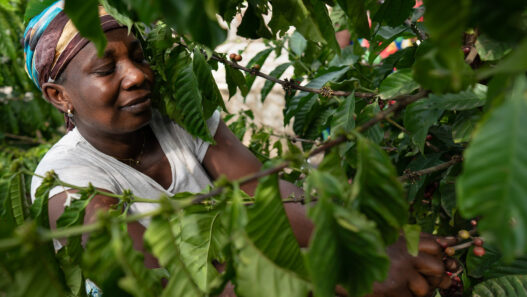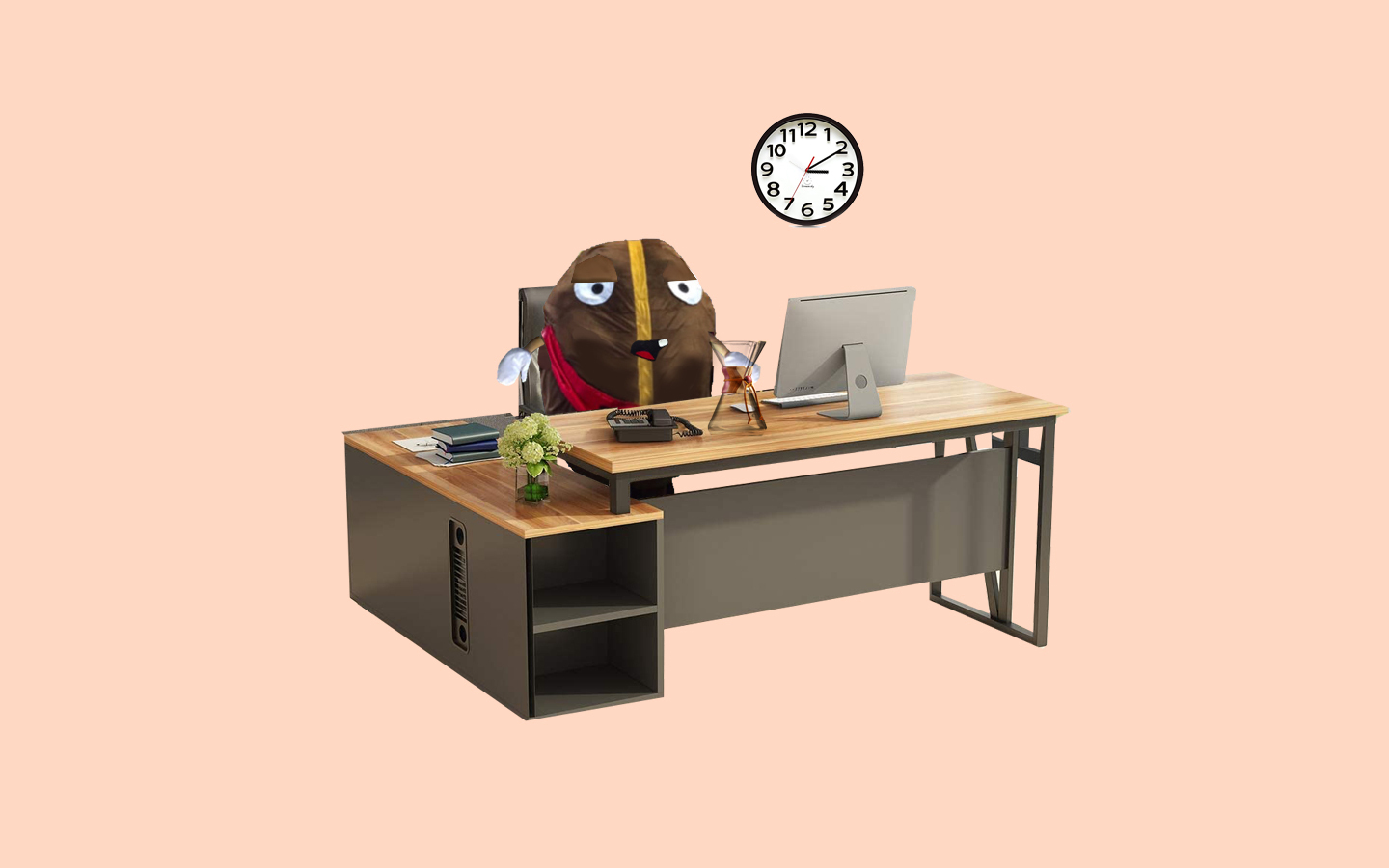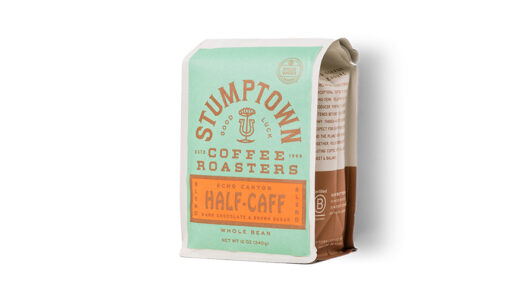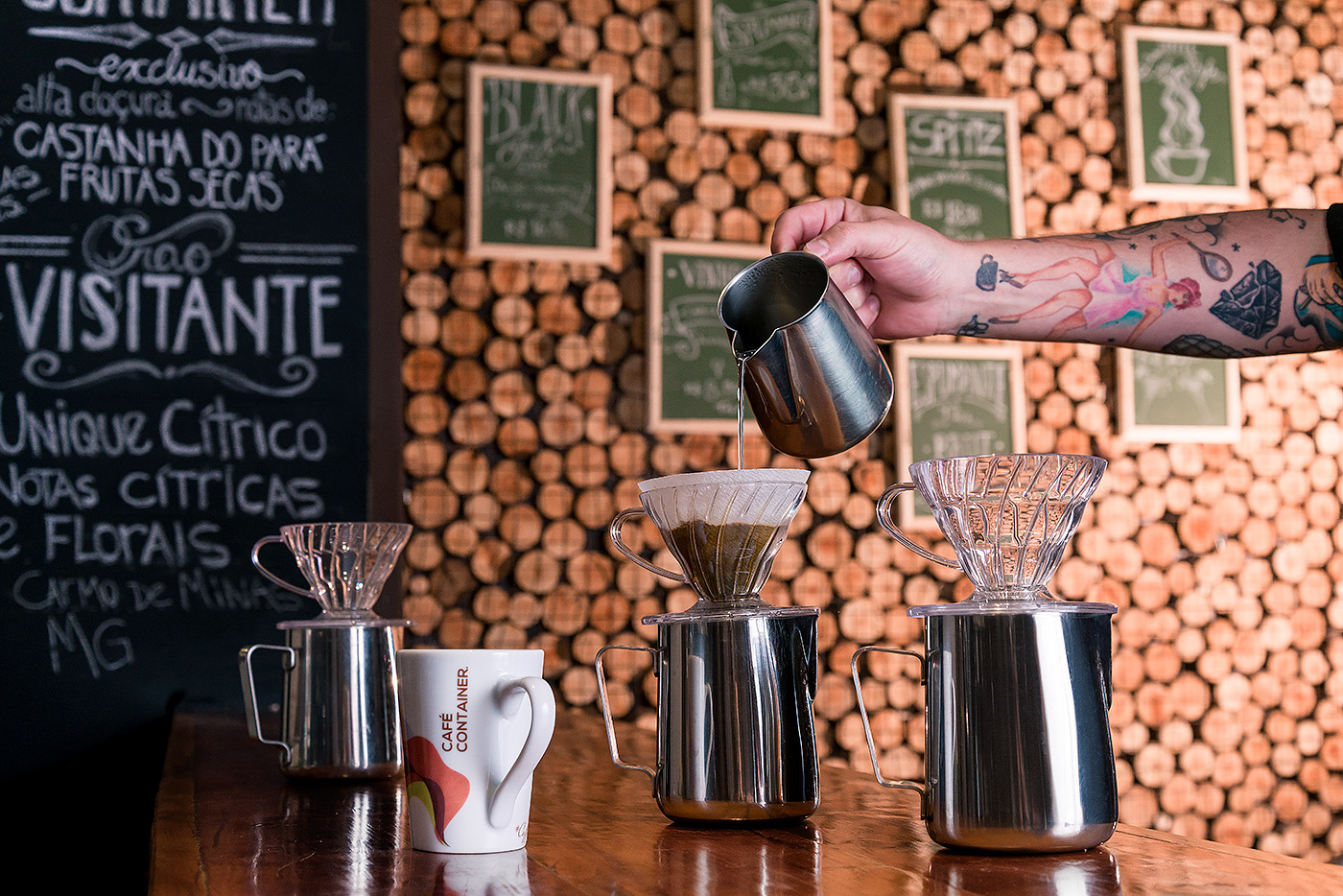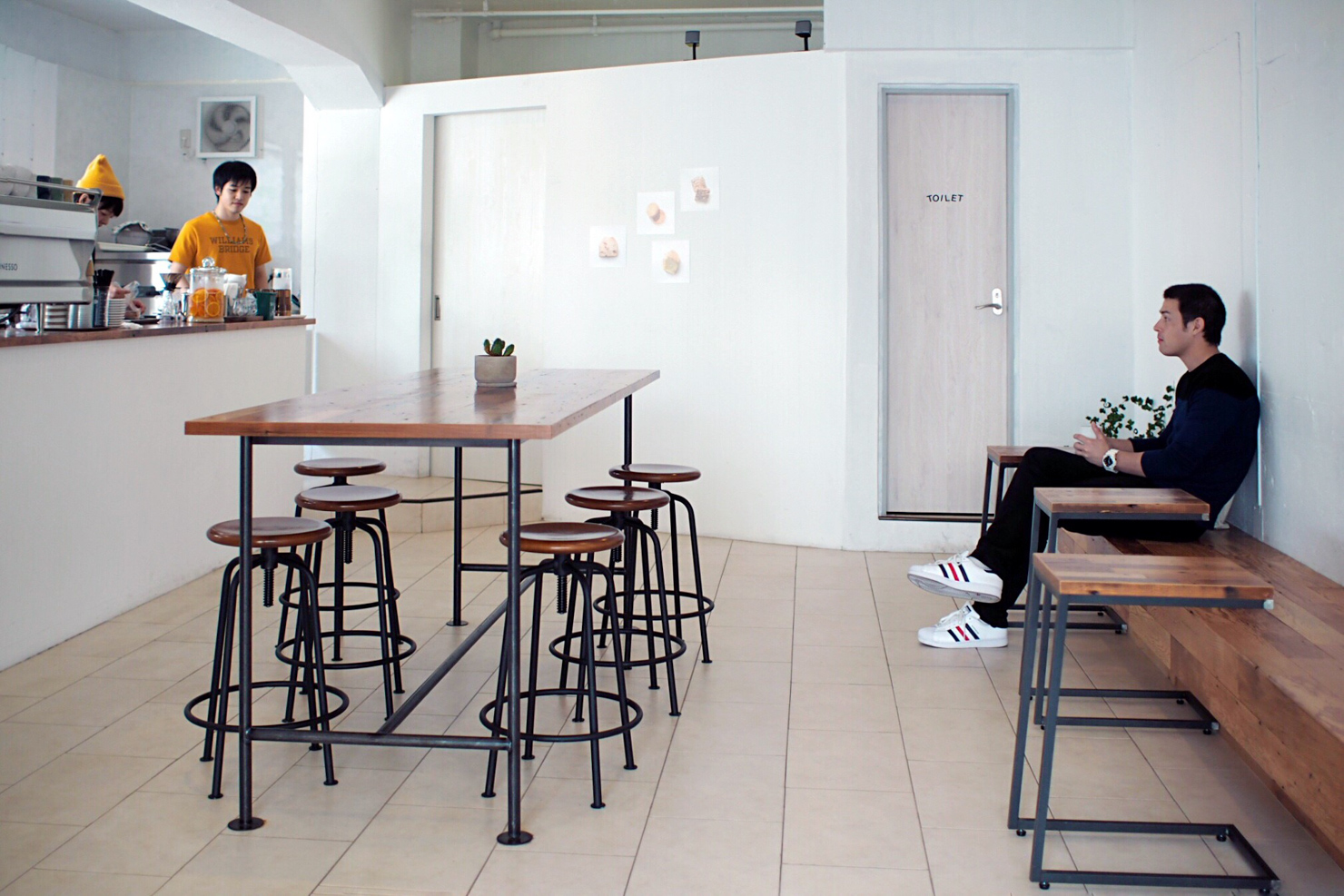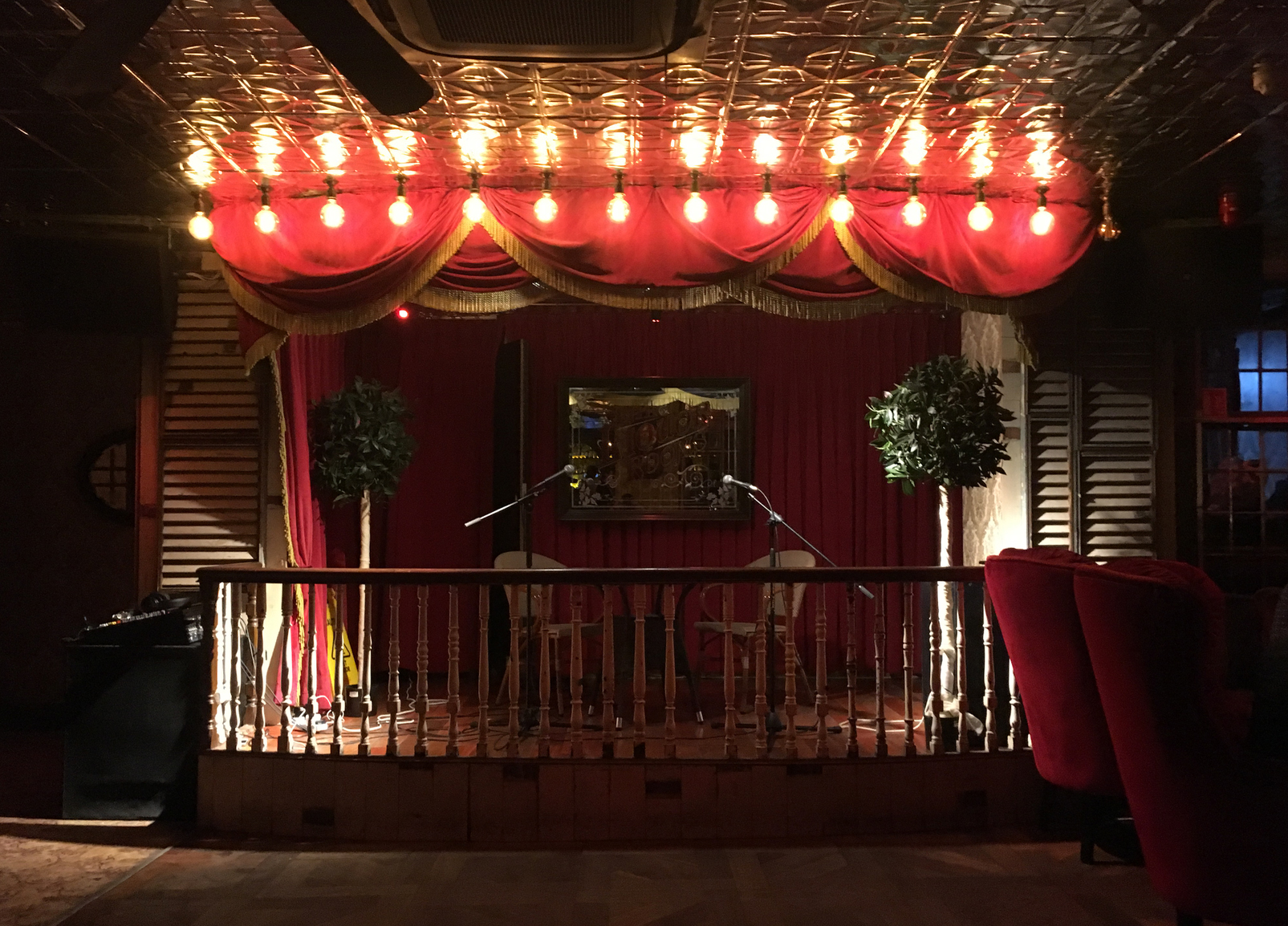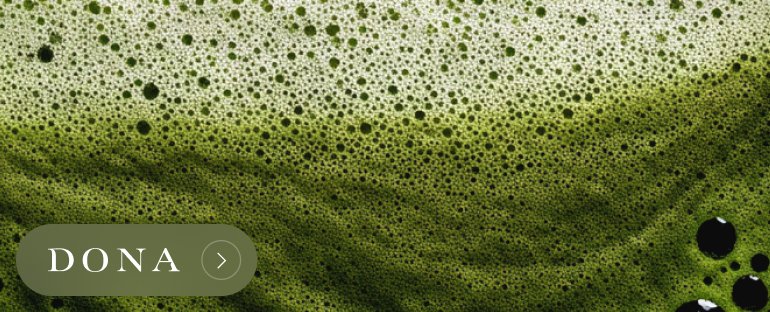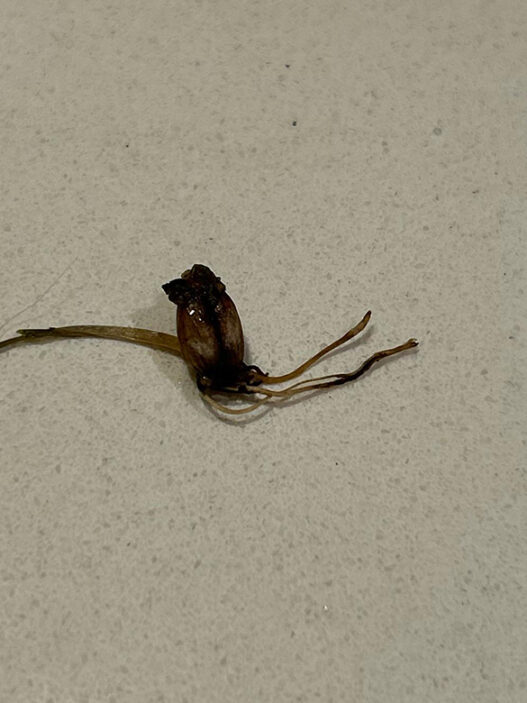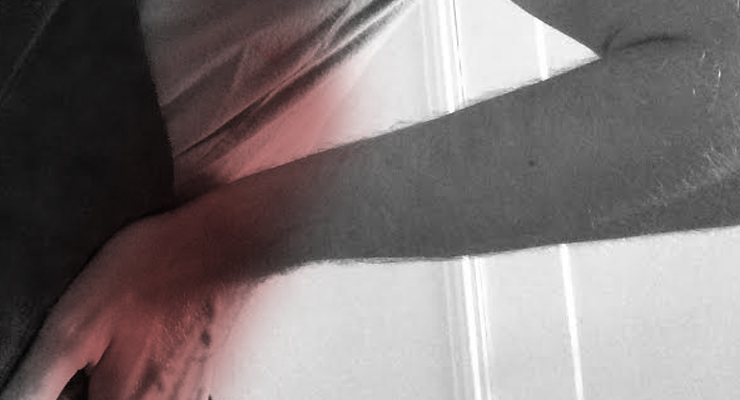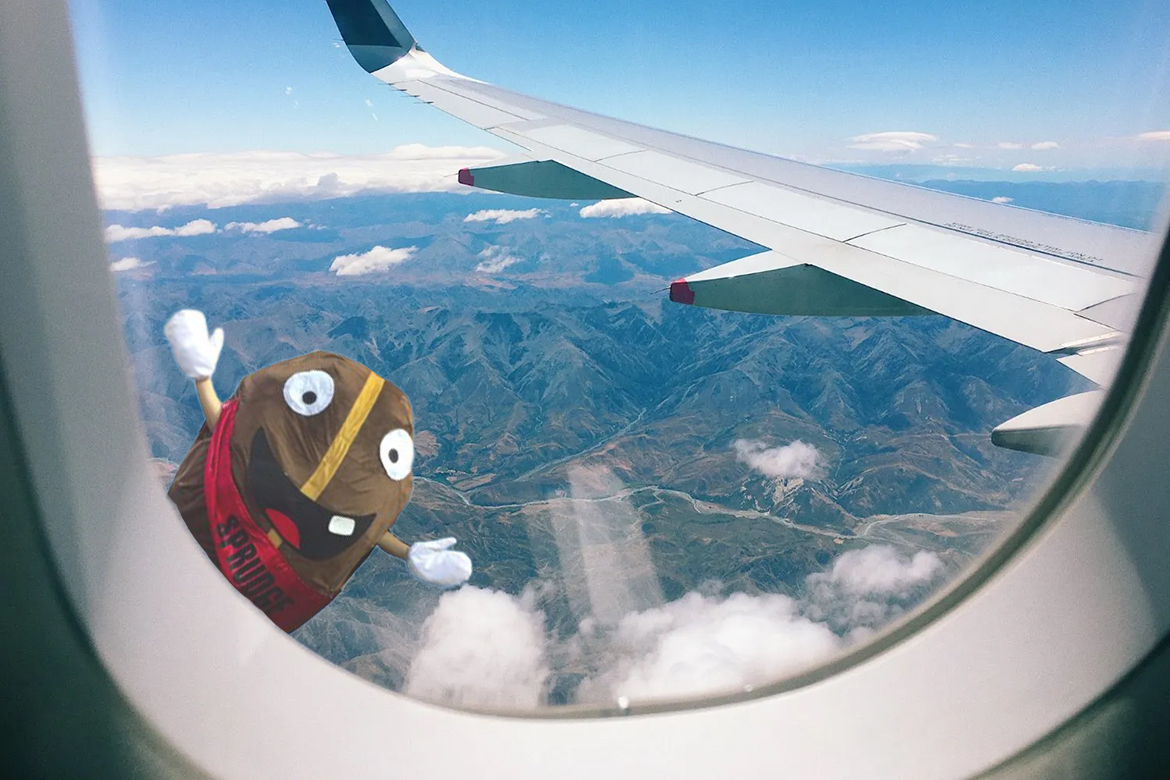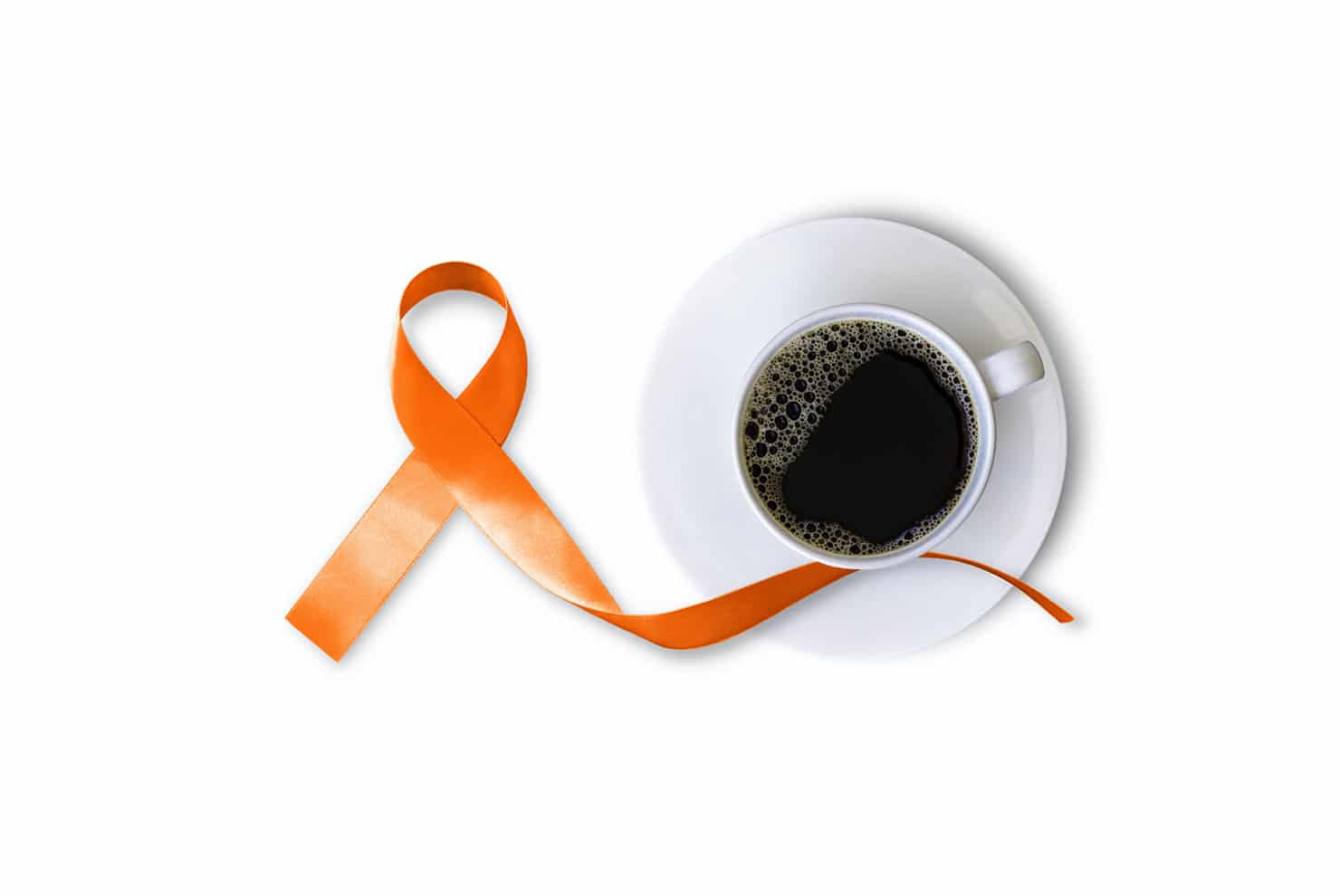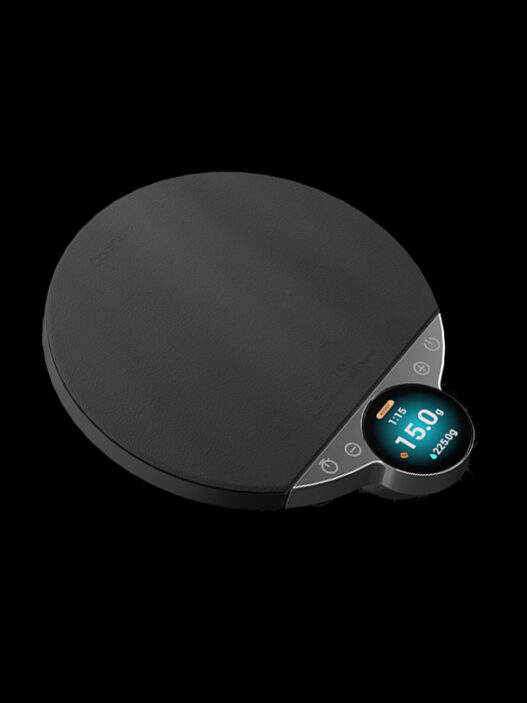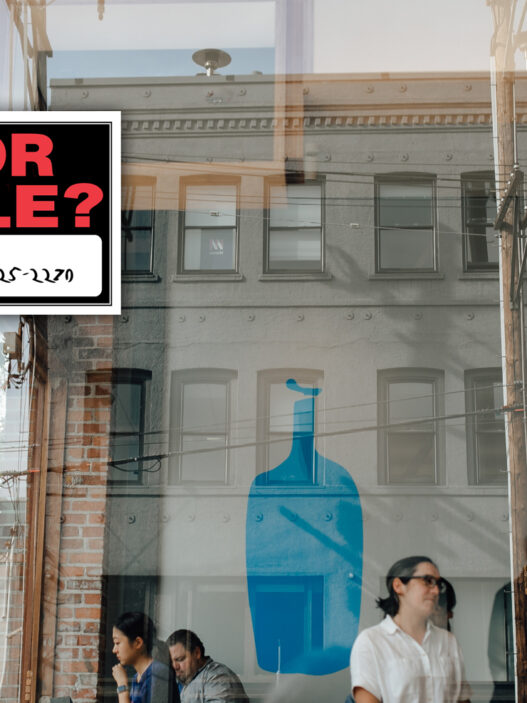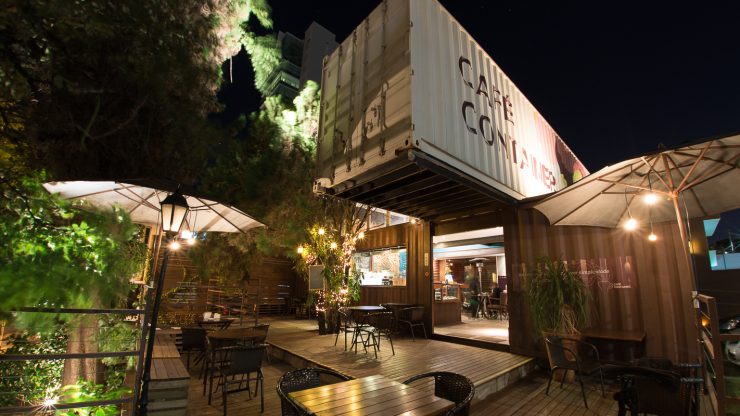
If you exclude capitals of Brazil’s states, Campinas is the largest city in the country, with around 1.1 million inhabitants. It’s a one-hour drive from São Paulo, and also close to one of the largest cargo airports in Latin America (Viracopos). It is served by some of Brazil’s most modern highways, with rail networks connecting its industries to the port of Santos (Brazil’s busiest export port) in record times, and the city is internationally renowned for the quality of its public and private universities.
In fact, the Agronomic Institute of Campinas (IAC) thoroughly developed and rolled out many of the coffee varieties cultivated across the country, such as Red and Yellow Catuaí, Acaiá, Mundo Novo, and Obatã. Founded in 1887, the IAC has always supported programs that bring about technical improvements to Brazilian producers, and since the 1970s it has been continuously focused on genetic improvements of the Arabica coffee plant and development of specific varieties to respond to plagues, climate idiosyncrasies, and technical challenges across the many producing regions.
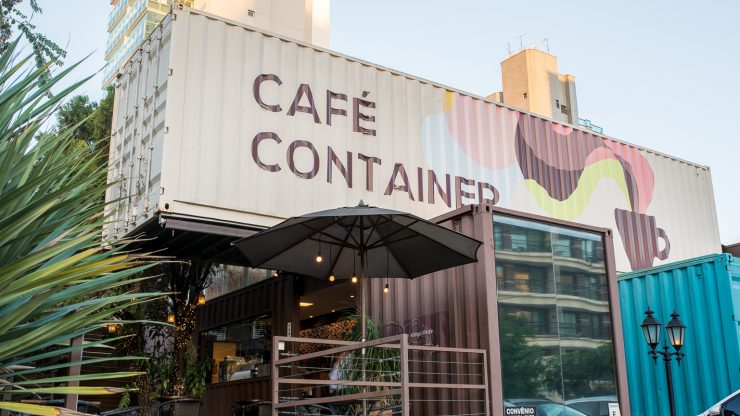
That entire introduction is just to help underline that, until a few years ago, there was virtually no place in Campinas to get a decent cup of coffee. And by decent I mean carefully sourced, freshly roasted, and ground to order. Enter Café Container, founded in 2013 by partners Gustavo Mourtada and Eric Ortiz. After traveling extensively and noticing the lack of specialized coffee shops in the Campinas area, they decided to invest in a place that would both bring specialty coffee culture to the city and also serve as a neighborhood spot for people to hang out, catch up on work, or read a book.
The name, as you might have guessed, comes from its architecture—three shipping containers make up part of the cafe’s structure. Two of them are underneath the third one, which displays the company’s logo. The second floor (where the third container is located) is soon going to be renovated to make room for more tables, Ortiz and Mourtada tell me. Inside the cafe it feels really cool (literally—thermal tiles act as a cooling aid); a long espresso bar is where the waiters communicate orders to the barista in charge, and at the back of the cafe there is a wall built solely with wood pins.
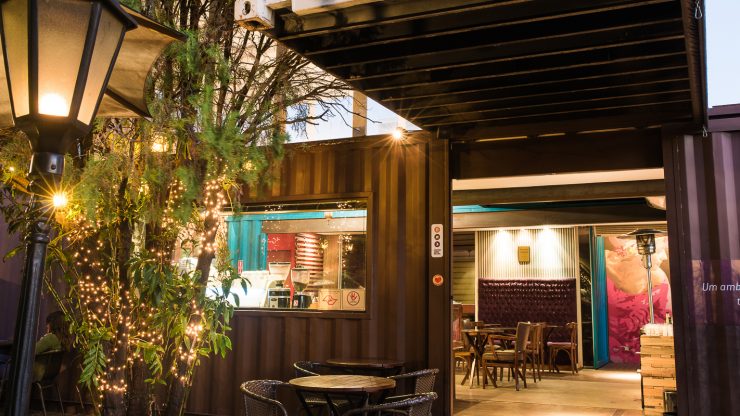
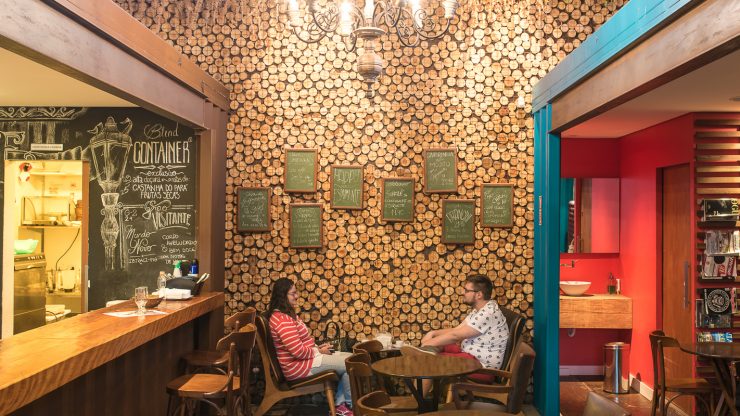
To pioneer specialty coffee in Campinas, Mourtada and Ortiz invested in a Dalla Corte DC Pro espresso machine and trained their staff with the Coffee Lab and Wolff Café crews in São Paulo. The house has its own espresso blend, and a rotating bean is always offered as an option (when I was there it was a lightly roasted Red Catuaí from Minas Gerais). Aside from that, they also serve filtered coffee (V60) and AeroPress—both methods that are still uncommon in other coffee shops in the city. The food menu has small bites that go perfectly with coffee, such as brigadeiro, cakes, and pão de queijo.
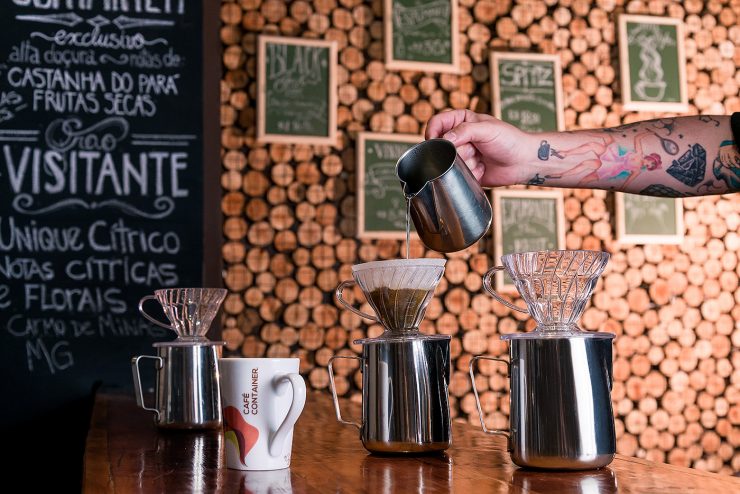
One thing they do to familiarize the Campineiros with specialty coffee is make the barista available to answer questions regarding extraction methods. Plínio Eduardo, the head barista, is usually at the shop, and makes sure that all drinks made by him (or a barista trained by him) come with a sticker that says feito por barista (made by a barista)—the purpose being to show customers that there is a profession associated with coffee methods, and that the person behind the counter went through intensive training before starting to pull shots at that machine. It is a way of both signaling the value of the barista craft and making the customer feel special by being served something that was made with care, the partners explain.
Mourtada points out that one thing that helped Café Container in the beginning was winning the “best coffee shop” award in a local magazine—only nine months after opening. In the wake of that press, many Campineiros visited out of curiosity and became regulars after being introduced to the good coffee. Today, Container’s best seller is still espresso, but the pour-over coffee is also selling significantly—once baristas see that the client is open to suggestions they will always suggest a pour-over so that they can try something new. Another approach is offering a “tasting menu” in which the customer picks a coffee and then is served that one bean as espresso, V60, and AeroPress. That way, they can tell the difference between each method and pick their favorite.
Little by little, Mourtada and Ortiz are earning their place in Campinas’ coffee scene, by offering good coffee options to customers who are unfortunately used to bitter and overly extracted espressos. So next time you’re in Campinas—perhaps changing the world with some coffee research—you know where to head for a decent cup.
Juliana Ganan is a Brazilian coffee professional and journalist. Read more Juliana Ganan on Sprudge.
Photos courtesy of Daniel Galo, Fernando Giomo, and Alli Delli.




